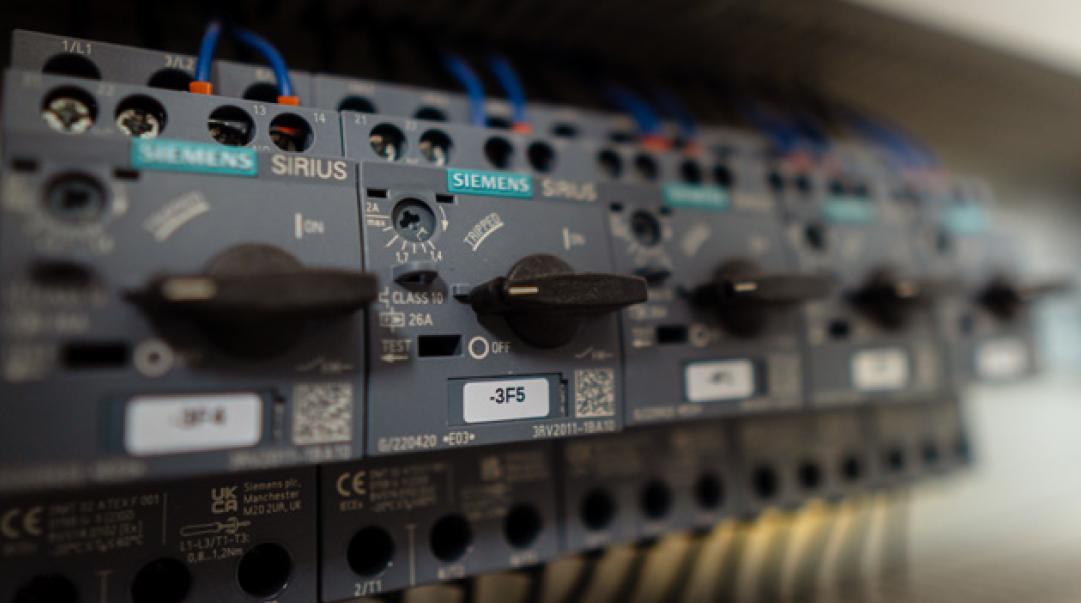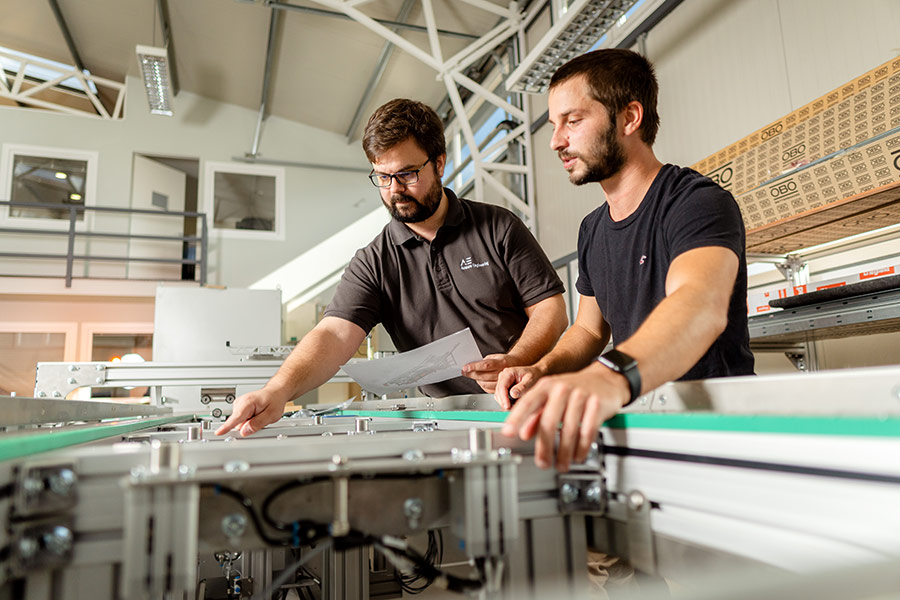It is not possible to do quality work in the long term with an unsafe machine. Suitability is, of course, relative; a device in good condition can be perfectly suitable for DIY at home, but it is no longer ideal for working with it in a factory manner with alternate or possibly unskilled machine operators. We asked András Pap, the project manager of Auware Engineering Kft., and Bencsi Berencsi, the managing director of SAASCO Tanácsadó és Mérnöki Iroda Kft., about what is behind the fact that a machine operator can feel safe next to the machine.
Why is a consulting company needed in target machine production?
Bence Berencsi: If someone follows the changes in standards and regulations on a daidailyheir knowledge can stay stable for a few months. This is a severe difficulty for machine manufacturers, as they have to deal with customer relations and technology. However, their work is affected by roughly 1,000 standards, of which a dozen or two change every month. Many of these can be foreseen years in advance, but any machine manufacturer can follow not all. From this point of view, compliance consulting works like tax consulting, where continuous legislative changes are impossible for a non-professional to follow. On the other hand, our product and market knowledge could be better than we can effectively and comprehensively transform a piece of equipment. This is precisely why we form a winning pair with the Auware company.
András Pap: I don’t know how long we have been in contact with SAASCO. This cooperation is so “historic” because it brings win-win situations for both of us. If we need a CE-CE marking or a compliance and safety check for a machine we have built or refurbished, we often turn to them, as our knowledge of standards and regulations is not always up-to-date. Can the customer also choose a consulting company?
András Pap: There are few experienced consulting firms in Hungary – maybe only two in the automotive industry. In the last ten years, machine manufacturers have begun to take the role of consultants more seriously. In the past, compliance only mattered in more than one case as long as the consulting company employees were on-site and carried out inspections. Such an attitude is no longer characteristic of any serious machine manufacturer.
Do you need a compliance consulting firm in every case?
András Pap: In the case of an average machine, we already have stable checklists and measurement methods, but every innovation also carries uncertainty. When it comes to compliance and safety, one can never be too sure. But the compliance test may also be necessary if the machine is transferred to another site without substantial changes.
Bence Berencsi: Of course, since regions can mean repeated commissioning, and in such cases, the question arises as to how the regulations of 10-20 years ago have changed over the years. One-half of the world is constantly breaking the law, which only comes to light in such cases. As an independent consultant, it doesn’t matter to us what parts are included in the machine. If unnecessary, we don’t tighten a single screw; preferably, we only evaluate whether the device complies with all relevant regulations.
András Pap: According to the first scenario, SAASCO prepares the list of deviations that we have to resolve. In the other case, we already involve them in the planning, knowing they will perform the measurements and prepare the risk analysis. They also check the existence of the machine parts required for the performance levels to be achieved according to the SISTEMA protocol, which includes the analysis of the safety functions and the fulfillment of other related conditions.
Bence Berencsi: The CE marking of the installed components needs to be improved in itself; the CE marking process must also be carried out for the complex system before the first commissioning. Upon receipt, it turns out the machine does not meet the requirements for CE marking; it can be financially quite costly since even though the equipment works flawlessly, it cannot be put into operation. If the machine has to be rebuilt and safety elements have to be installed, then the cost implications can adversely affect the layout of the entire plant and the work processes.
In what direction have the regulations changed in recent years?
András Pap: Today, the preventive nature dominates even when designing the machine. The machine must be designed in such a way that the machine operator cannot intentionally cause damage to himself or the equipment. Today, we have to assume that someone wants to put their hand under the press deliberately, in a sabotage-like way, and we have to protect these imagined situations as well.
To what extent are safety aspects in the foreground in the domestic processing industry?
Bence Berencsi: We examine 250-300 projects annually involving more than 500 pieces of equipment. Barely 1 percent of them are perfect from the point of view of the CE marking, which means that there is almost always a problem. In the best case, only one sticker is missing, or something needs to be translated into Hungarian – this is almost perfect condition – but 30 percent of them would be handed over with severe risks of accidents. Fortunately, the numbers show an improving trend; that is, the topic of accident prevention is becoming more and more aware in everyday life. During the KGST period – and for a while afterward – it was cheesy to admit that a minor accident was caused by a plane that suffered it. Even now, we do not deal with this in place, but during the shortage of professionals, employers place much more emphasis on the safety of machine operators.
András Pap: More and more often, we come across requests that if an accident occurs with one of the production equipment at one of the locations of an international company, then all similar equipment at all locations around the world will be inspected.
How can a target machine manufacturer adapt to market uncertainties?
András Pap: We also have to order devices, for example, which I cannot guarantee will be integrated into the equipment. If we were to stick to the project management phases written in the ledger, we would not be able to hand over the machines. We have to trust that the supplier will take back the unused elements due to the lack of parts, and if not, we will be able to use them in a later project. The only certainty with features that have a chip is uncertainty; even if the part is available, buyers may still bid on it daily. Project management takes time, which means looking for substitute products and redesigning the machine if necessary.
We have therefore given up our previous minimum stock policy and pre-order materials for one and a half to two projects, assuming what we will need. But every piece of equipment has unique elements that cannot be prepared for in advance. Fortunately, the customers are also aware of the market situation and are more understanding about slippages.
– Molnár László, TechMonitor


